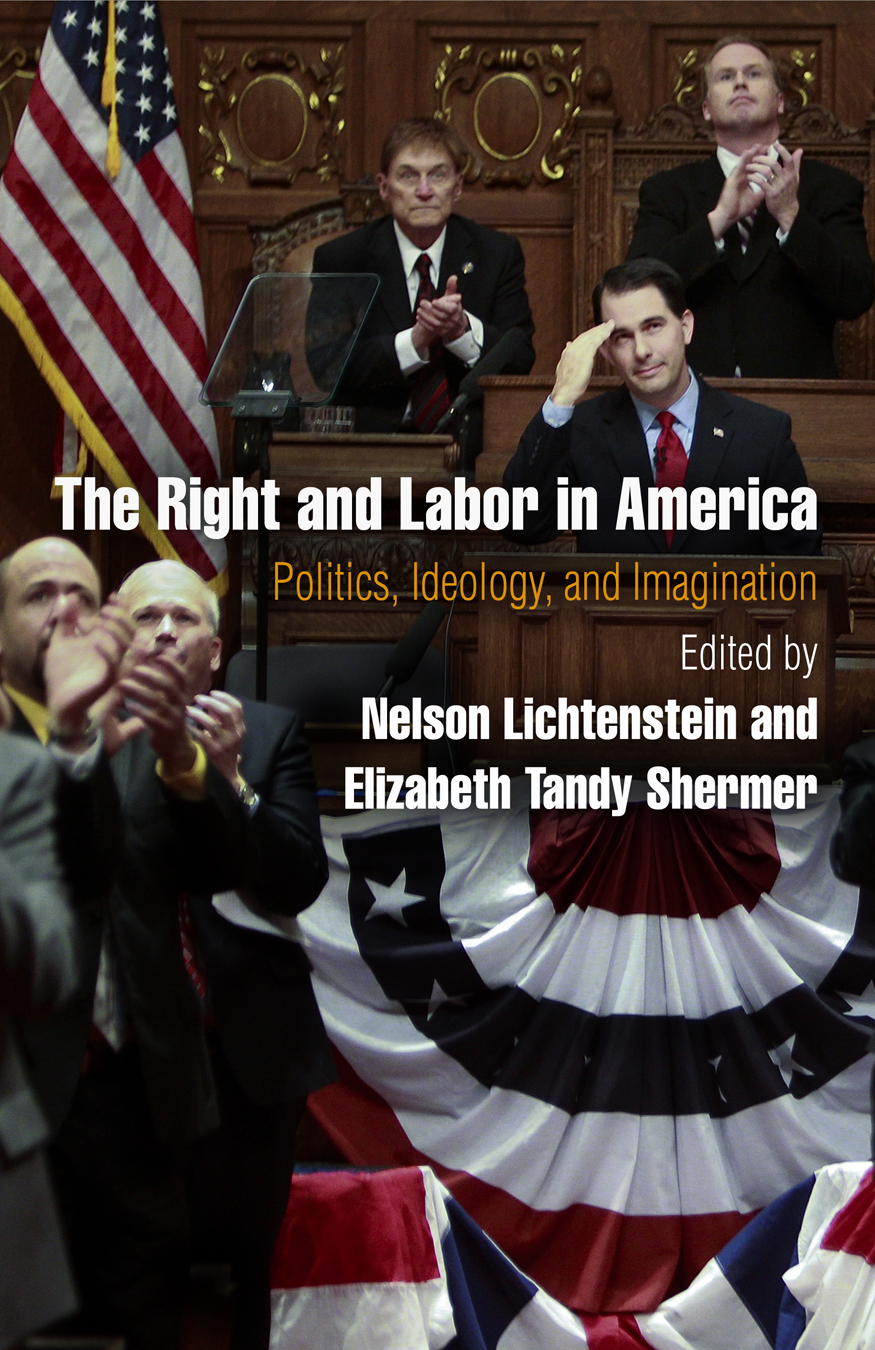

The legislative attack on public sector unionism that led to the uproar in Wisconsin and other union strongholds in 2011 and 2012 was not just a reaction to the contemporary economic difficulties faced by the state and local governments. It was the result of a longstanding political and ideological hostility to the very idea of trade unionism put forward by a conservative movement whose roots go as far back as the Haymarket Riot of 1886.
The controversy in Madison and other state capitals reveals that opposition to labor's status and power has always been at the core of American conservatism, today as well as a century ago. In his new book, "The Right and Labor in America –– Politics, Ideology, and Imagination" (University of Pennsylvania Press, 2012), editor Nelson Lichtenstein, the MacArthur Foundation Chair in History at UCSB and director of the campus's Center for the Study of Work, Labor, and Democracy, explores the multifaceted history and range of conservative hostility toward unionism. The book is co-edited by Elizabeth Tandy Shermer, a UCSB alumna who now teaches history at Loyola University in Chicago.
"What's at stake today is the very idea of trade unionism, in the private sector as well as the public," said Lichtenstein. "Scott Walker's recent victory in Wisconsin signifies that many ideological constructs and anti-union sentiments once thought marginal to American politics are now very much within the mainstream. Our book offers the most thorough and complete guide to this conservative universe."
Contributors to the volume explore how conservatives have framed and transformed their arguments about unions, in particular the ideological impulses, rhetorical strategies, and political efforts that conservatives have deployed to challenge unions as a force in U.S. economic and political life for more than a century.
"The greatest threat that trade unions face in the United States today is neither the fiscal crisis found in so many states and municipalities, or even the electoral success enjoyed by so many anti-union Republicans," Lichtenstein continued. "Both are harmful, but an even greater threat arises out of the increasingly successful effort of conservatives to delegitimize the very idea of social solidarity, collective struggle, and trade unionism itself. The essays in the book demonstrate that this has been a century-long project."
As Lichtenstein and Shermer write in the book's introduction: "In the years since World War II, a series of well-connected lobby groups, law firms, and business associations have policed the Republican Party's anti-union agenda and in crucial instances moved it firmly to the right. Thus, the National Federation of Independent Business and the National Restaurant Association have joined such older, manufacturing-oriented standbys as the National Right-to-Work Committee and the National Association of Manufacturers as key formulators of Republican labor policy."
Lichtenstein is also the author of "The Retail Revolution: How Wal-Mart Created a Brave New World of Business" (Henry Holt, 2009) and "American Capitalism: Social Thought and Political Economy in the Twentieth Century" (University of Pennsylvania Press, 2006).
Related Links



